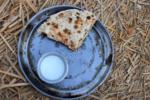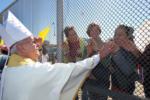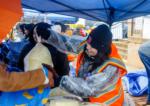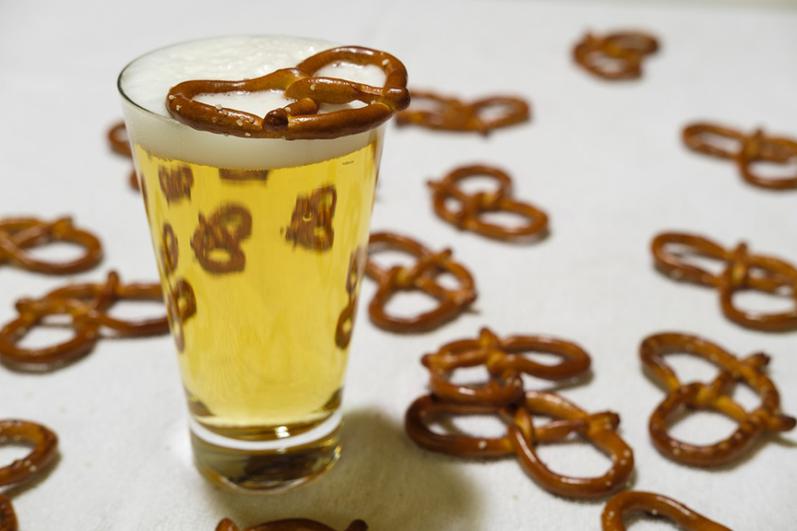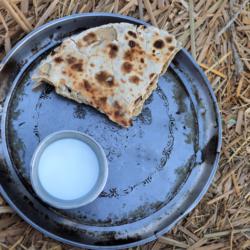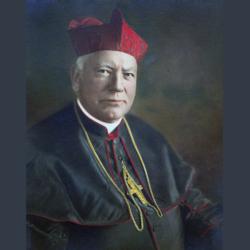Sustaining the fast: Simple meals for the Lenten desert
Lent calls us into a season of 40 days of fasting. It's common for us to focus particularly on one edible attachment: chocolate, alcohol, dessert, etc. Throughout Christian history, however, Lent called everyone to a more rigorous time of general fasting and asceticism. Mandatory fasting may have been reduced to two days, but the season, in its essence, entails 40 days of curtailing our food intake. This entailed abstaining from all animal products (except fish) for the full 46 days, Sundays included, and not eating a full meal until evening on Monday through Saturday. Early Christians fasted completely until evening, but, over time, some collations (snacks) were allowed after noon.
Fasting entails not eating, but what we do eat during Lent should reinforce our focus on the goals of the season. Not eating should make us hungry for God and our higher needs. When we eat, this, too, should point us to God and conversion. To turn away from the flesh, we stop eating the flesh of animals, reminding us of the danger of following our own fleshy appetites. Fish could be seen as an exception to get around fasting (and Catholics love to find those), but eating fish positively points us to our true food. From the beginning, the fish represented Christ himself, the Ichthus -- Jesus Christ Son of God, Savior -- who offers us the daily bread we need to survive. Eating fish also offers a sign of conversion as we turn to Christ in Lent and Fridays throughout the year. And when it comes to fish fries, let's just keep it simple for a day of sacrifice!
Special foods have arisen to meet the demands of the Lenten fast, with pretzels made of flour and water being the most famous. The pretzel's origin may be lost to history, but we do know with certainty that it arose in the early Middle Ages, the time of the monks, with the first recorded mention in the fifth century. By the 12th century, they were common enough in Germany to appear on the emblems of bakers as a symbol of their craft. The most likely etymology is brachiola, "little arms," because if you flip the snack upside down, you will find an image of folded arms as an emblem of Lenten prayer. In addition, its three holes can be seen to represent the Trinity. If pretzels really do derive from Lenten fasting, then it would make sense even for this collation to point back to the spirit of the season.
But if you eat pretzels, won't you need a beer to drink with them? Is that allowed during Lent? Early Christian fasting proscribed wine, along with oil, meat, and dairy. Beer was not widely consumed in Greco-Roman culture, making this barley-based drink another possible exception to the Lenten fast. Some have even claimed that monks survived solely on beer during Lent, but, based on my research for "The Beer Option: Brewing a Catholic Culture Yesterday and Today" (Angelico, 2018), it was used in Bavaria as a supplement during the day until the sole evening meal. Like the pretzel, beer, a staple of Northern European culture, helped sustain the fast. Beer and pretzels -- that will lead us to asceticism, right? Well, if you embrace a fast as rigorous as St. Francis Paola's Friars Minum (who founded the Paulaner Brewery in Munich), you may just need a beer to get you through the day. For my part, I'll stick to water.
Finally, a simple Lenten soup offers a perfect course for the penitent. Father Xavier Weiser describes two Polish recipes in one of his many books on Catholic customs of the seasons (in this case, "The Easter Book," which also addresses Lenten customs). The first is simply called Lenten (Postna) soup, made with sauteed carrots, celery, and onions, which are then simmered in water. The second is Postna Grochowka, Lenten Pea Soup, comprising a pound of split peas, seasonings (salt, pepper, bay leaves, and allspice) and a cup of carrots. All the ingredients should be boiled for four hours except the carrots, which are added halfway through. Add some pretzels alongside a bowl of Lenten soup, and you'll have a perfectly simple meal for the season.
Why focus on Lenten foods? These examples point us to the ancient custom of more serious fasting throughout the Lenten season. They call us to abstain from meat, to refrain from eating between meals, to substitute meals for more simple snacks, and to curtail any luxury from our eating habits. What we eat should remind us of the call to fast, which in turn should point us to the Lord as the true sustenance of the season, which he offers us in our daily prayer with him in the desert.

